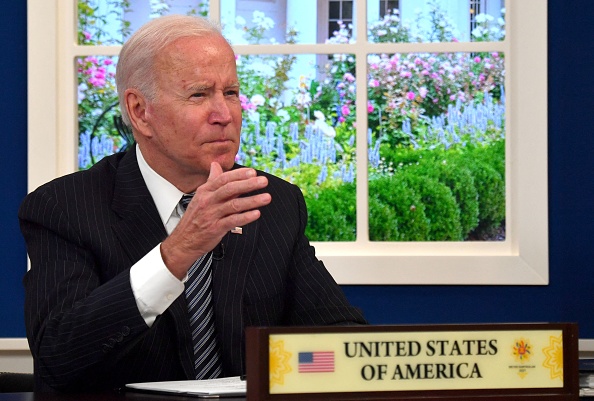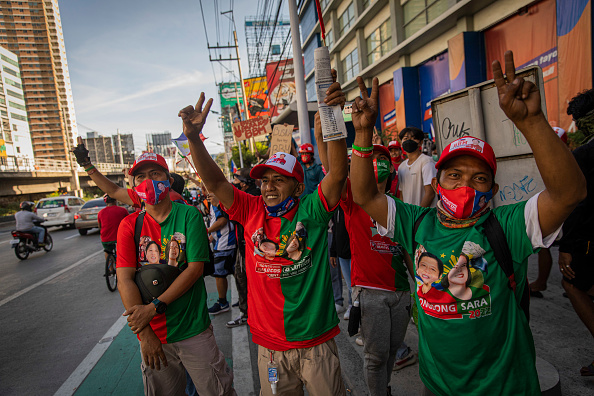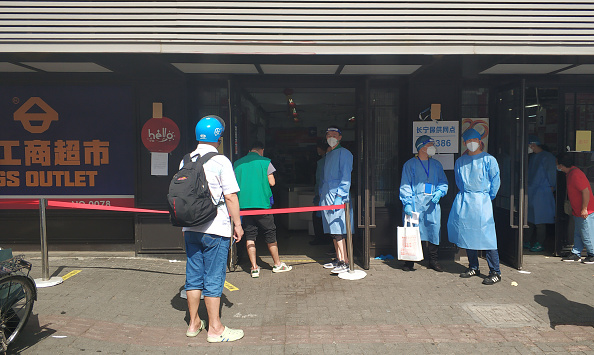
 Common Ground
Common GroundPresident Joe Biden hosted leaders from the Association of Southeast Asian Nations (ASEAN) in an effort to demonstrate that the United States has not lost focus on the Pacific even while dealing with Russia's invasion of Ukraine and economic challenges at home. In seeking to keep pace with China, the U.S. has found common ground with many Southeast Asian nations, which include some of the world's fastest-growing economies and most-contested waters.
Signaling that it will step up its game in the region, the White House announced that the United States would commit to more than $150 million in new projects to bolster Southeast Asia's climate, maritime and public health infrastructure. And Biden nominated one of his top national security staffers to serve as ambassador to ASEAN, noting the U.S. has not had a confirmed ambassador to the organization in more than five years.
However, the Summit drew criticism from ASEAN representatives who grumbled about a lack of time with the president at the summit, as well as human rights groups looking for the U.S. to apply more pressure at a time when civic space is under severe threat across the region.
Chinese State media criticized the summit, claiming that it was intended to push ASEAN to confront China and stated that "neither the grandiose aid nor Biden's talk would be able to tie ASEAN to the U.S.'s chariot against China."
Read more in "U.S.-ASEAN Summit: What It Means," by Zhang Yun, an Associate Professor at the National Niigata University in Japan.
 A Closer Relationship
A Closer RelationshipPresumptive Philippines' President Ferdinand "Bongbong" Marcos Jr. is optimistic the relations between China and the Philippines are bound for more fruitful and meaningful outcomes for both countries under his administration. Marcos made the statement following a lengthy telephone conversation on Wednesday with Chinese President Xi Jinping, who also conveyed his congratulations and assured him that China will respect and support his incoming administration's independent foreign policy.
Marcos has long-standing ties with China and is seeking a new deal with Xi over the contested waters of the South China Sea. The Philippines is a key player in U.S.-China competition, as its maritime territory includes part of the South China Sea, a strategic and resource-rich waterway over which China also claims sovereignty. The Philippines is also a long-standing treaty ally of the United States, and the victory of Marcos is a potential blow to U.S. efforts to push back against China.
Kurt Campbell, the White House coordinator for the Indo-Pacific, said Washington expects there will be some 'initial challenges' in dealing with the new president, but added that relations under outgoing leader Rodrigo Duterte 'really rebounded' toward the end of his term.
Meanwhile, China has called for an expansion of the group of emerging economies known as BRICS, in the first shakeup of the bloc in over a decade. No word on what country that might be, but it is certain to shake up the group.
Read more in "The South China Sea Disputes and Philippines-China Relations Post-Duterte," by Lucio Blanco Pitlo III, a Research Fellow at the Asia-Pacific Pathways to Progress.
 Restoring Routine
Restoring RoutineAfter more than six weeks in lockdown, Shanghai officials announced earlier this week that the city has achieved "zero-Covid at the community level," meaning infections are no longer found outside centralized quarantine facilities or neighborhoods under the strictest lockdowns. Officials have reported a plan to gradually open up, with a target of fully reopening by June 1, though some residents remain skeptical if the goal is possible.
"From June 1 to mid- and late June, under the premise of controlling the risks of a rebound in infections, we will make epidemic prevention and control a normalized routine, and fully restore normal production and life in the city," Deputy Mayor Zong Ming said.
Supermarkets, convenience stores and pharmacies began to reopen earlier this week, Zong said, adding they would be followed by hair salons and wholesale agricultural markets. China has also removed some COVID-19 test requirements for people flying in from countries like the U.S. and shortened the pre-departure quarantine for some inbound travelers.
But while recent reports have given residents and travelers signs of hope, China also announced this week that it has pulled out from hosting the 2023 Asian Football Confederation Asia Cup. Analysts have noted that this could signal that the country's zero-Covid policy might remain in place for some time to come. The tournament was supposed to showcase a new soccer stadium in Shanghai, and the withdrawal brings an added sting as authorities have spent years, along with tens of millions of dollars, trying to boost China's soccer program over the last two decades. The full economic impact is still unclear.
Prepared by China-US Focus editorial teams in Hong Kong and New York, this weekly newsletter offers you snap shots of latest trends and developments emerging from China every week, while adding a dose of historical perspective.
- 2022-05-13 Bilateral Interests
- 2022-05-06 Vying for Mutual Benefit
- 2022-04-29 Seeking Relief
- 2022-04-22 Tipping Point
- 2022-04-15 “Persistence is Victory”
- 2022-04-08 No Divorce
- 2022-04-01 Auditing Accountability
- 2022-03-25 Playing Policy
- 2022-03-18 One Hand Cannot Clap
- 2022-03-11 Political Forecast
- 2022-03-04 Competitive Advantage
- 2022-02-25 A Sovereign Tightrope
- 2022-02-18 Strategic Disengagement
- 2022-02-11 In the Thick of It
- 2022-02-04 Year of the Tiger
- 2022-01-28 Zero-Sum
- 2022-01-21 An Uncertain Future
- 2022-01-14 Digital Advances
- 2022-01-07 The Dawn of a New Political Year
